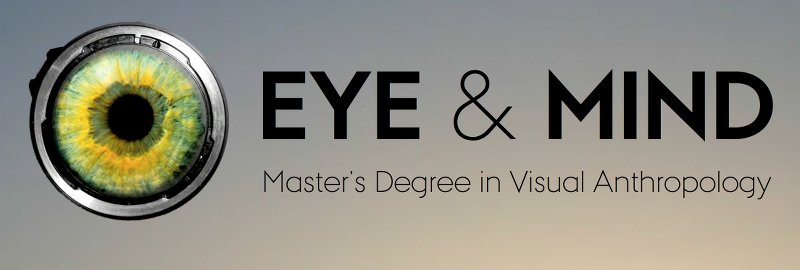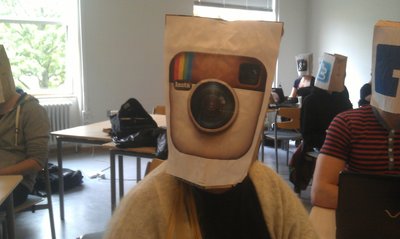DEADLINE FOR APPLICATIONS 15 MARCH 2014
• Commencement of studies: 1 September.
• Duration of program: 2 years / 120 ECTS.
VISUAL ANTHROPOLOGY AT AARHUS UNIVERSITY
With the Master’s Degree programme in Visual Anthropology, Moesgaard Museum and Aarhus University aim to establish a research environment where students, scholars, artists, film- and exhibition-makers can experiment and develop forms of inquiry and representation that allow a close engagement with cross-cultural experience and imagination. The new museum site of Moesgaard provides a window through which students, film- and exhibition-makers can enter directly into dialogue with the broad public. Furthermore, the museum provides a unique public laboratory for experimenting with diverse methodologies and technologies of representation. This is of value not only to students and researchers, but also to the museum, whose ambition it is to allow visitors to share in the very creation of anthropological knowledge.
In the autumn of 2013 the new museum building opened to students and staff and in the autumn of 2014 Denmark’s first new-built cultural historical museum will be inaugurated. The building adds 16,000 square meters to the museum and thus sets the stage for a variety of new exhibition opportunities including special editing facilities, lecture halls and exhibition space for students in the programme in visual anthropology.
WHY VISUAL ANTHROPOLOGY
Anthropologists are increasingly recognizing the need to broaden the scope of their methodology and analytical expression. Traditional academic representations in the form of written articles or monographs excel in their ability to provide insights into the cultural practices, norms, rules and institutions by which people live. But to engage fully with the complexities of social life, anthropology needs alternative academic languages that allow researchers to explore the role of perception, imagination and emotion in human interaction. New social media and audiovisual technologies of communication offer unique possibilities for engaging and bringing into dialogue the whole of the human sensorium and imaginative capacities. Public institutions, private organizations and academia are increasingly demanding audiovisual methods that can facilitate cross-cultural analysis, dialogue and imagination. The overall aim of this programme is to qualify students of anthropology and related disciplines to take on the task of audiovisual research, consultancy and communication in the contemporary world.
The programme is not only designed for students who wish to become ethnographic film directors or museum curators. The emphasis is on educating full-scale anthropologists with special capabilities in audiovisual analysis and communication. In addition to specific themes in visual anthropology, students attend courses in general anthropological debates and methodologies. This grounding in broad theoretical debates allows students to engage in audiovisual communication of relevance beyond the specialized field of visual anthropology.
Throughout the programme students produce a number of visual anthropological presentations culminating in the production of a thesis comprised of a visual anthropological product (film, photography, museum installation, multimedia) and a written part with further methodological, analytical and representational reflections. Through intensive and ongoing engagement in audiovisual communication, students receive skills in operating video and photo cameras, sound recording, composition, video editing as well as practical experience in designing and managing audiovisual projects. Lecturers with a variety of professional backgrounds within the audiovisual production industry provide insight into aspects such as development, production, broadcasting and fundraising.
ADMISSION REQUIREMENTS
• A bachelor’s degree in anthropology from Aarhus University (AU) or the University of Copenhagen (KU).
• A bachelor’s degree with at least 45 ECTS-points in anthropology (i.e. 75% of a full-time academic year of study).
TUITION FEES FOR NON-EU/EEA/SWISS CITIZENS
• Students from Denmark and the EU are not required to pay tuition fee for the graduate program in Visual Anthropology.
• Annual tuition fees for non-EU/EEA/Swiss citizens is Euro 9,100 (60 ECTS).
HOW TO APPLY
Study Centre Arts, tel: +45 87161087, studiecenter.arts.aarhus@au.dk
• http://kandidat.au.dk/en/anthropology/
• http://kandidat.au.dk/en/guidance/
SPECIFIC QUESTIONS ABOUT THE PROGRAMME
Christian Suhr, tel: +45 31600031, suhr@hum.au.dk
• http://pure.au.dk/portal/en/suhr@hum.au.dk
PROGRAMME COORDINATORS
• CHRISTIAN SUHR, filmmaker and Assistant Professor of Anthropology, Moesgaard, AU. PhD and film projects about Islamic exorcisms and psychiatric healthcare in Denmark.
• PETER IAN CRAWFORD, Professor of Visual Anthropology, social anthropologist, filmmaker, development consultant and publisher. www.intervention.dk
FACULTY
• TON OTTO, Head of the Ethnographic Collections, Moesgaard Museum and Professor of Anthropology. Director of prizewinning ethnographic films on socio-cultural change in Papua New Guinea.
• RANE WILLERSLEV, Professor of Anthropology and Senior Research Fellow at the Aarhus Institute for Advanced Studies. Author of books and articles on human perception, cinematic montage and sacrifice.
• KAREN WALTORP, course developer and documentarist, AU. Current PhD-research project with Muslim women in Denmark on social media and place-making with smart phones. www.waltorpvium.com
• CHRISTIAN VIUM, photographer and Postdoctoral Fellow, AU. Has produced a number of photographic exhibitions and prizewinning documentaries. www.christianvium.com
• ARINE KIRSTEIN HØGEL, Postdoctoral Fellow, AU. PhD-research in haptic visuality in documentary and ethnographic films. Current research in archival material and audiovisual archaeology.
• THEA SKAANES, curator and leader of the UNESCO collections, Moesgaard Museum. PhD project about power objects and cosmology among the Hadza hunter-gatherers in Tanzania.
• THOMAS FIBIGER, curator and PhD in Anthropology, Moesgaard Museum. Research on the globalization of heritage and politics of imagination in the Arabian Gulf.
• ANE BONDE ROLSTED, visual anthropologist and exhibition coordinator. Has produced ethnographic films for a number of institutions in Denmark and as museum director in Greenland.
• SUSANNE HØJLUND, Associate Professor of Anthropology, AU. Research interests include experimental visual ethnography, childhood and youth, pedagogy, welfare and food culture.




